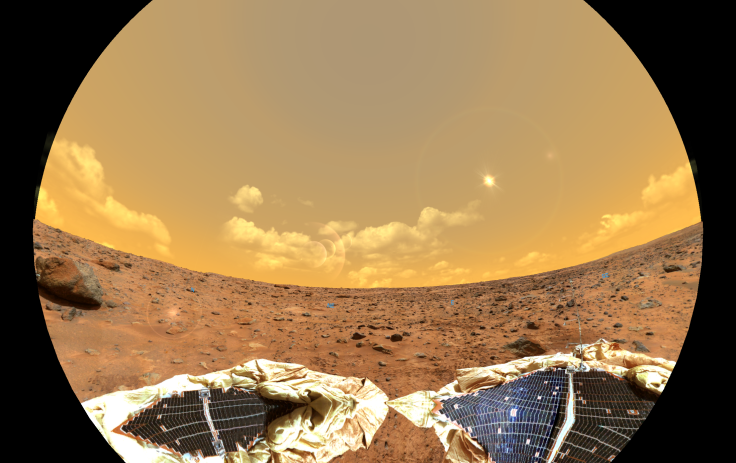Mission To Mars: Far Distances Could Cause Chronic Dementia, Long-Term Brain Problems For Astronauts

Add one more danger to lengthy space missions: chronic dementia.
A study published Monday by researchers at the University of California, Irvine indicates long-term exposure to cosmic rays could cause dementia and cognitive impairment, making a three-year mission to Mars and back problematic.
The findings indicate such developments could impair astronauts’ ability to operate over the course of a mission and impair executive function to the point where they are unable to carry out complicated tasks or make decisions.
"Unlike humankinds’ other great adventures, space is truly the final frontier. Our exploration of strange new worlds should not be hampered by the fear of cosmic radiation exposure, but rather, inspire robust efforts to advance our understanding of a tractable problem," the study, published in Nature’s Scientific Reports, said.
The researchers exposed test rodents to particle irradiation from fully ionized oxygen and titanium at NASA’s Space Radiation Laboratory at New York’s Brookhaven National Laboratory.
Six months after exposure, the test animals had significant levels of brain inflammation and neuron damage.
"This is not positive news for astronauts deployed on a two-to-three-year round trip to Mars," Charles Limoli, professor of radiation oncology in UCI's School of Medicine, said in a press release.
"The space environment poses unique hazards to astronauts. Exposure to these particles can lead to a range of potential central nervous system complications that can occur during and persist long after actual space travel — such as various performance decrements, memory deficits, anxiety, depression and impaired decision-making. Many of these adverse consequences to cognition may continue and progress throughout life."
The researchers also found the radiation apparently affected the brain’s ability to suppress unpleasant or stressful associations, which could raise anxiety levels. Limoli said the six-month results mirror earlier findings from a six-week post-irradiation study published in the May 2015 issue of Science Advances.
Limoli said the findings are similar to the cognitive dysfunction common in brain cancer patients treated with high-dose, photon-based radiation.
The study is part of NASA’s Human Research Program, investigating how space radiation could affect astronauts and finding ways to mitigate the effects. Limoli said spacecraft could be designed to include areas of increased shielding to protect astronauts while they rest or sleep. But, he said, there’s no real way to keep the ionized particles from traveling throughout the ship.
Preventive treatments involving pharmaceuticals also are being investigated, he said.
© Copyright IBTimes 2025. All rights reserved.






















